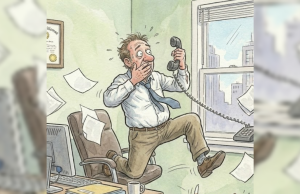When you gotta go, you gotta go, even if you are in the shower. But you shouldn’t, according to experts. Doctors have revealed why urinating in the shower can be detrimental to the health of both men and women.
We often have the natural urge to urinate in the shower without worrying much. If you haven’t done it yet, you have certainly thought about it.
Not much attention is paid to this because we are washing up and clearing the urine with water immediately. But that’s not good enough. We’re here to explain why!

Peeing in the shower
By peeing in the shower, you save quite a bit of water. So it’s better for the environment to do so. However, it can have adverse effects on your body, pelvic physiotherapist Ylenia Degli Esposti explains to Linda. She says that doing it every once in a while isn’t a big deal but it shouldn’t become habitual. This could train your brain to associate the sound of running water with a full bladder.
Nerve damage
If you pee in the shower often, you’ll immediately feel as if you need to pee every time you hear running water. Degli Esposti also explains that this is the reason you shouldn’t turn on the faucet to try to make yourself pee. This has the same effect on your brain and bladder. On top of that, peeing in the shower on a daily basis can lead to nerve damage. There’s a chance that this will result in a lowered continence. In this case, any other underlying medical issues could lead to a lessened control of your bladder.
Peeing sitting down
This posture when peeing is also bad for your body. Your pelvic floor muscles can only truly relax when you’re seated. This will allow you to fully empty your bladder. This is especially true for women because men’s anatomy allows them to pee more easily when standing. But it’s also recommended for them to pee sitting down. Only when sitting down can be uncomfortable, like after giving birth, is it recommended to pee standing up.
Bladder won’t be completely empty
We mentioned before that you can only truly empty your bladder when sitting down. This is extremely important for lowering your risk of bladder problems. Not doing so can result in a bladder infection because you’re not peeing out all the bacteria. These bacteria can stay behind in your bladder and cause a urinary tract infection.
References: tips-and-tricks.co, timesnownews.com

















